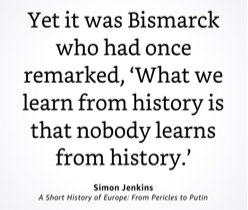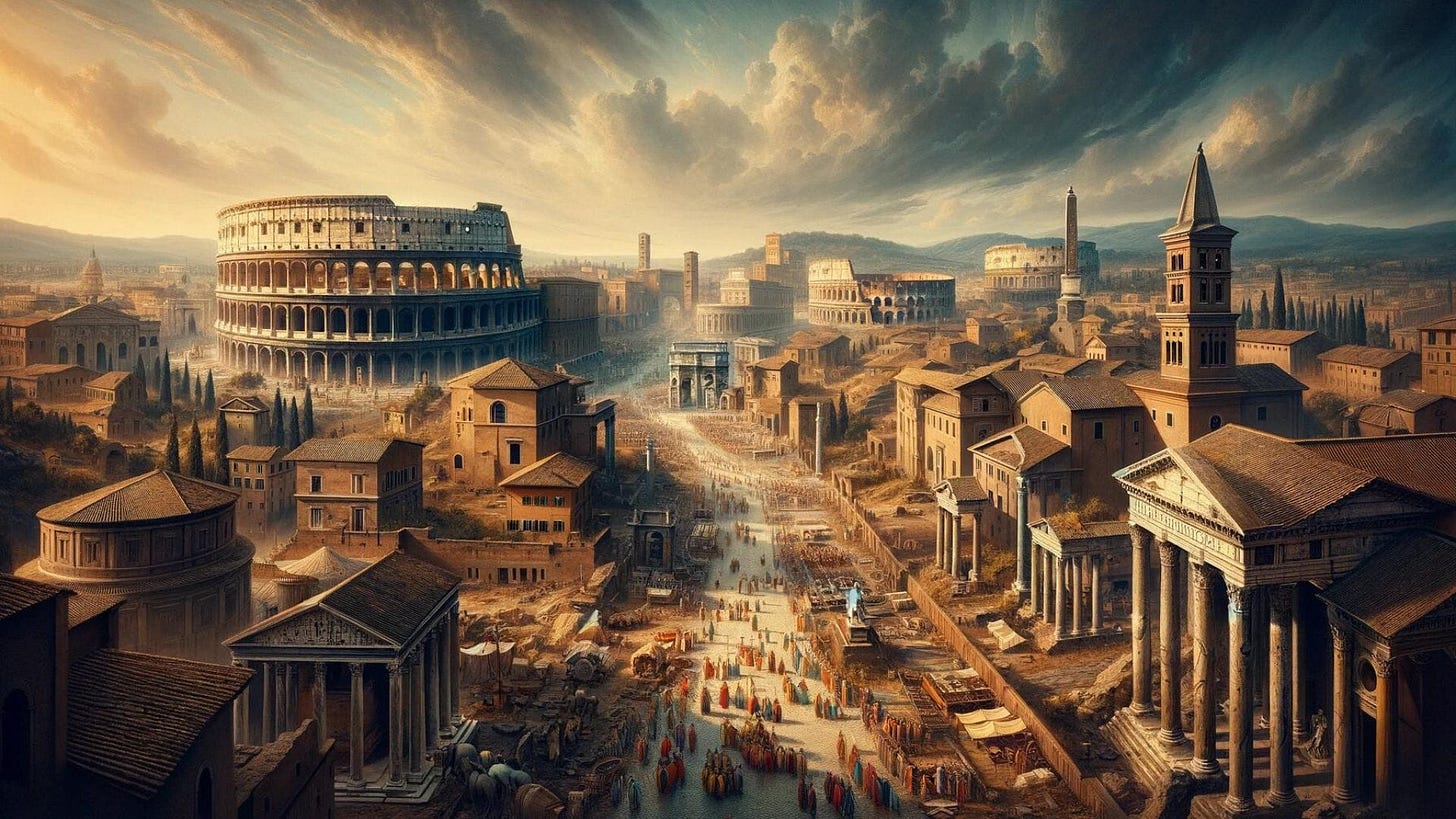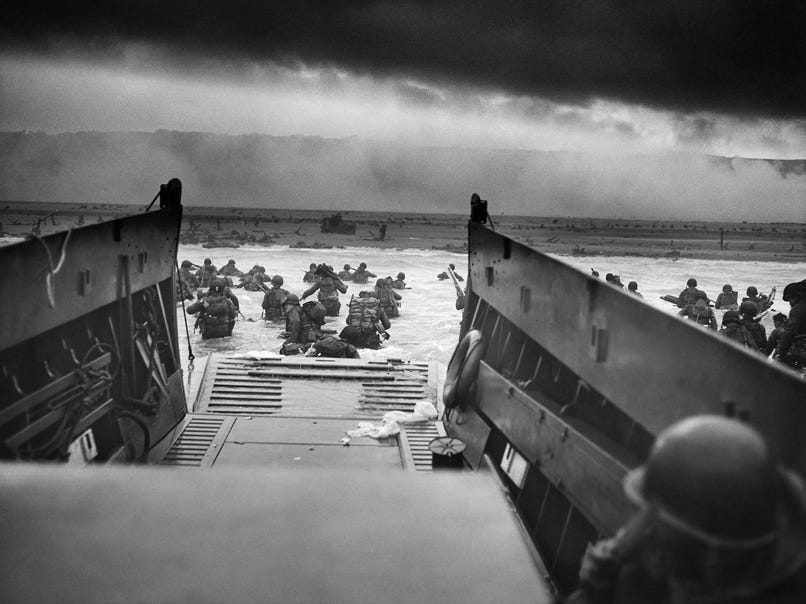I’ve just returned from a month in Central Europe; these travels have provided me with a historical perspective on our challenging times. I’ll be honest: writing about spirituality while witnessing the dismantling of the foundational aspects of democracy feels daunting. Do we really have time for reflection, contemplation, and exploration of life’s mysteries while the house is on fire? It’s a question of action versus contemplation, as old as human civilization.
Longtime readers of this Substack newsletter know I’ve touched on this theme lightly in the past, but now there is an urgency. Here in the United States, the norms governing daily life are under siege. While the current administration found a favorable electorate last November, its first five months in office have led to dramatically low poll numbers. However, those numbers, along with massive protests in the streets and town halls, seem to be summarily dismissed, if not outright ignored. Longtime conservatives appear to join the daily chorus of outrage from others in the middle and the progressive end of the political spectrum, expressing a fear that autocracy is on the rise.
How does one think and act during these times? What resources do Depth Psychology and Spirituality offer?
These times call for both action and contemplation. An example from the civil rights movement of the 1950s and 1960s is when Howard Thurman became the spiritual advisor to Martin Luther King Jr. and others. While King was in the streets, Thurman supported him and others.
I’m not claiming Thurman’s mantle; I’m not even close. However, I use that as an example that a resistance movement needs grounding. In my view, the best of our spiritual and religious traditions, along with the contemporary work of depth psychology, can serve as a form of grounding. Therefore, as these “Notebooks” continue, you’ll notice a more social, political, or cultural application of those resources.
In the future, I intend to touch on these topics:
How does Carl Jung’s concept of the human shadow apply to our current national crisis? Both collectively and individually.
Does Western Philosophy offer ideas for a future form of civilization?
What religious teachings of Christ, Buddha & Moses resource a society that seems less interested in their offerings?
Is understanding the enemy helpful for a resistance movement?
How are the new forms of communication changing us?
Do we have to choose between Action and Contemplation?
These are BIG topics, and I enjoy digesting, reflecting on, and writing about them. My goal is to present complex ideas that others have written about in a clear and accessible manner. That’s the shift I am making. If this isn’t what you signed up for and you wish to bow out, I understand. If the topics intrigue you and you’d like to support these efforts, I welcome your support. As always, the newsletter remains free for everyone, with optional pledge support. Let’s begin this new direction with some historical perspective on our current situation.
History Isn’t Just the Past—It’s Our Guide Through the Storm
My month in Central Europe has provided me with a historical perspective on our challenging times. As I biked through medieval towns in Austria, Slovakia, and Hungary, explored 12th-century churches in Montenegro, and stood before memorials to war in Germany and Croatia, I couldn’t help but reflect on the state of the world today.
Climate change, political division, global conflicts, and the rapid pace of technological advancements often make it seem as though we are living in a completely new era of crisis. The anxiety is real, and the headlines provide little comfort. Yet, if there’s one lesson I’ve learned from history—and my travels—it’s this: we are not the first generation to feel that the world is unraveling. And we won’t be the last. Every era has its darkness, but out of that darkness, humanity has often found renewal, progress, and even hope.
Let’s look back at some of history’s darkest hours—and see what light they might shed on today.
The Plague Years: When Death Walked the Streets
In the 14th century, the Black Death swept through Europe, killing between 30% and 60% of the population. Imagine the entire world being struck by something far worse than COVID-19. Entire towns vanished. Fields went untilled. Churches stood empty. It must have seemed like the end of civilization.
To make matters worse, leaders offered little assistance. Pope Clement VI secluded himself in Avignon, lighting fires to “cleanse” the air. King Edward III of England continued to wage wars as if nothing were happening. The Holy Roman Emperor, Charles IV, was unable to coordinate a response across his fractured empire.
And yet, out of this horror, something unexpected occurred. The severe labor shortage empowered peasants and workers. Wages rose. People began to question authority and tradition. The rigid social system of feudalism started to fracture. Over time, the Renaissance emerged—a flowering of art, science, and humanism that transformed Europe forever.
A few centuries later, Central Europe was once again engulfed in chaos during the Thirty Years’ War (1618–1648). This brutal religious conflict left towns in ruins and resulted in the deaths of up to 40% of the population in some areas. Emperor Ferdinand II’s fanatical religious policies made peace impossible for decades. Nevertheless, peace was eventually negotiated. The Peace of Westphalia, despite its shortcomings, not only halted the bloodshed but also laid the groundwork for the concept of sovereign nations and religious tolerance.
Collapsing Empires: From Rubble to Rebuilding
The Roman Empire is often seen as a symbol of ancient greatness. However, it did not last indefinitely. By the 5th century, it had started to disintegrate. Rome was sacked, civil wars erupted, and emperors came and went like a revolving door. Emperor Honorius took no action when the Visigoths entered Rome in 410 CE. The empire was divided into the East and West, with each facing its own challenges.
Even in the midst of collapse, seeds were planted. The eastern half—what became the Byzantine Empire—preserved Roman law, art, and knowledge for another thousand years. The Christian Church provided a sense of stability by keeping literacy and learning alive in monasteries. The so-called “barbarian” kingdoms that emerged after the fall of Rome often adopted Roman systems, which significantly influenced the development of medieval Europe.
Political and Religious Upheaval: When Faith and Power Collided
Fast forward to the French Revolution (1789–1815), another moment when the world seemed to be on the brink of collapse. The monarchy fell. Heads rolled. The continent was caught in war. Leaders like Louis XVI and Robespierre failed spectacularly—one through passivity, the other through brutality. Napoleon rose and fell, trying to establish an empire on the ruins of the old.
Once again, progress followed disaster. Feudalism was abolished. The Napoleonic Code had a profound influence on the development of legal systems worldwide. The ideas of democracy and nationalism, once considered radical, have become the foundation of modern states. Even the violent upheaval led to the establishment of more representative governments throughout Europe.
Industrial Chaos: When Machines Changed Everything
The 19th-century Industrial Revolution brought about new wonders—and new nightmares. While steam engines and factories transformed production, they also forced millions to migrate to overcrowded, filthy cities. Children worked in mines. Workers toiled for meager wages while the wealthy grew even richer. The government and business elite largely ignored the suffering.
However, the people fought back. Labor unions emerged, and reformers advocated for public education, improved working conditions, and women’s rights. Over time, these changes lifted millions out of poverty and established the foundation for the democratic societies many of us enjoy today.
The 20th Century: Humanity’s Hardest Test
No century was as violent as the 20th. Two world wars, the Holocaust, and a global economic depression left the world deeply scarred. Dictators like Hitler and Stalin ruled with cruelty and terror.
However, what followed was truly astonishing. Nations came together to form the United Nations to avert future wars. Colonial empires began to fall apart, leading to the emergence of dozens of new countries. Movements for civil rights, women’s rights, and human rights gained significant momentum. Science brought forth vaccines, computers, and moon landings.
Yes, these solutions, creations had their flaws, but the overall theme is that out of the ashes of the worst, good things emerged.
A Lesson from the Past for the Present
History teaches two important lessons. First, each generation faces crises that seem insurmountable. Second, the human spirit—when united, resilient, and creative—can triumph over these crises.
I know that these current times challenge our sense of hope in humanity. I get it. I don’t intend for this brief history lesson to dismiss the current sense of dread. It is quite sobering. But we have faced difficulties before and prevailed. I believe we will again.
As that great Hobbit theologian, Sam ‘the Wise’ Gamgee, once said
That could be my new bumper sticker.
More to Come,
James Hazelwood is an author and documentary photographer. He writes on the intersection of spirituality, depth psychology, and now, cultural and societal forces. His website is www.jameshazelwood.net











Terrific essay Jim, thanks. History is not merely a record of what was, it’s the living memory of God’s stubborn participation in human affairs. The plague-ridden streets of medieval Europe, the collapsing grandeur of Rome, the bloody upheavals of revolution… these are not just past events, but sacraments of a divine pattern: death and resurrection writ large across civilizations. The same God who entered time in the person of Christ still moves through the ruins of empires, not as a distant observer, but as one who bears the scars of every crisis.
The anxiety of our age… the fear that democracy is unraveling, that technology is rewiring our humanity, that the center cannot hold, is not new. But neither is God’s response. The incarnation was not a one-time intervention but the eternal logic by which God meets chaos. When the Black Death decimated Europe, it was not despite the devastation but within it that the seeds of the Renaissance took root. When Rome fell, it was in the fragmentation that the Church preserved not just knowledge, but the living tradition of a God who makes all things new.
I seem this as the mysticism of history: that every collapse is a potential manger. The "laboratory of the Spirit" (as the Quakers called it) is not a quiet chapel, but the streets, the protest lines, the voting booths, the places where power is contested. To engage politically without spiritual grounding is to risk becoming what we oppose, and to contemplate without acting is to betray the God who took sides among the oppressed.
If the printing press helped fracture Christendom, it also democratized Scripture. If social media distorts, it also connects. The divine pattern holds. Every tool can become a sacrament or an idol, depending on whether we use it to dominate or to serve. The answer is not retreat, but redemption.
History’s lesson seems clear. The end of one world is always the birth of another. Our task is not to despair at the collapse, but to midwife the new thing God is doing. To be, like Mary, bearers of the impossible. The house is not just on fire, it is being rebuilt from the ashes, and the Architect has already shown us how He works: from a tomb, outward.
Wonderful post, Jim.